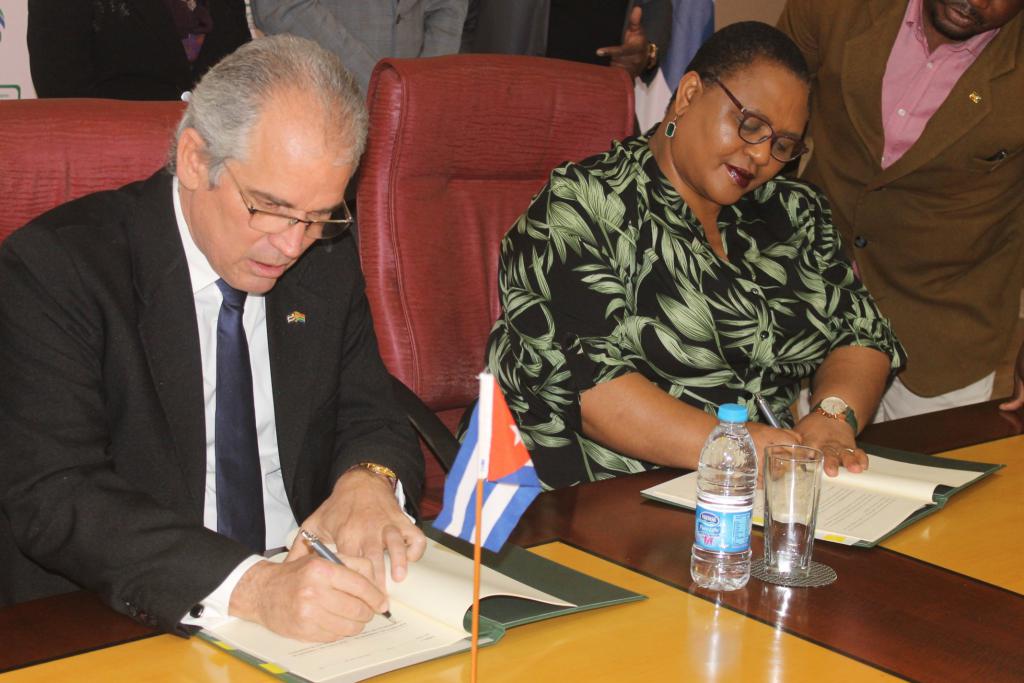The recent outbreak of avian flu that crippled the poultry industry and inflated prices has compelled the Department of Agriculture, Land Reform and Rural Development to seek mechanisms to avert and cushion the industry from the disease in the future. This led to an agreement to collaborate on research between Cuba and South Africa strategies to development strategies to support plant and animal health.
This accord has now been brought before the committee for ratification, to make it a binding instrument. The agreement has already been ratified by Cuba and the committee Chairperson, Mr Mandla Mandela, was at pains to find out why it had taken the department so long to ratify such an important document.
It also transpired in the meeting that the department had failed to furnish the committee with necessary documents stating the nature and scope of the agreement. Committee members also wanted to know what the financial implications of the agreement would be and why this agreement is now before the committee when others are not. They also had questions about the agreement’s legal standing and how it will safeguard the intellectual property rights current in force in the animal and plant professions in South Africa.
The Deputy Director-General of the department, Ms Kwena Komape, assured the committee that the department will provide the committee with the memorandum of understanding and legal opinion the department sought on this agreement. She further stated that the financial implications, the details on its nature and scope, and action plan have not yet been determined because the technical committee in charge of all that has not been established because the agreement has yet to be ratified.
On why this agreement was brought before the committee rather than the many others that were not, the department’s Director-General, Mr Mooketsa Ramasodi, replied that at the beginning of the sixth Parliament there was a request that Parliament should ratify all the department’s agreements. He also explained that the department’s process has taken so long because of the long verification process required, including this step of bringing it before Parliament.
On safeguarding South Africa’s intellectual property rights, the Director-General stated that any material transfer of intellectual property rights will follow the prescripts governing such undertakings. He also apologised for the failure to submit all relevant documents, which he said would be rectified swiftly.
Mr Mandela reemphasised how important it is for the committee to have all the relevant documentation before it can ratify any agreement. For instance, he explained, the committee will have to solicit its own parliamentary legal opinion on the matter to ensure that such a document passes the legal and constitutional requirements governing the legislative processes of Parliament.
The department was summarily requested to furnish the committee with these documents to enable it to have an informed understanding of the details of this agreement. Without these, it will not be able to make an informed decision, nor could it recommend the agreement to the Speaker of the National Assembly for ratification.
Abel Mputing
20 February 2024



